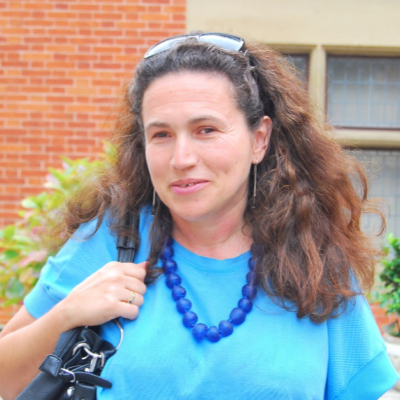4 August 2022 · Global Partnership for Zero Leprosy
Q&A: Meet Berta Mendiguren, GPZL Leadership Team Member
Berta Mendiguren, a member of Anesvad Foundation’s Board of Trustees and the GPZL Leadership Team, shares her perspective on the fight to end leprosy as a medical anthropologist based in sub-Saharan Africa.
How did you begin working in leprosy? 
In 2010 I was invited by the Spanish foundation, Anesvad, to be part of its Advisory Council as a medical anthropologist who specializes in sub-Saharan Africa. Since 1999, I had been conducting research in Mali on the therapeutic plans of migrant families in the Kayes region and the difficulties of access to health services, especially for women. While conducting my fieldwork, I was able to live in rural areas with people affected by leprosy. I witnessed their difficulties in accessing the community health center.
In 2013, I joined the Board of Trustees of Anesvad Foundation. In 2015, after more than four decades of leprosy work in Asia, America, and Africa, the Board of Trustees decided to refocus Anesvad’s mission in sub-Saharan Africa.
And it is on this path, first in Mali, and then from the Anesvad Board of Trustees that I have been fortunate to deepen my knowledge and commitment to people affected by leprosy, as well as Buruli ulcer, yaws, and lymphatic filariasis. We work hand-in-hand with governments and other organizations.
You have lived and worked in the Central African Republic. Can you tell us about your experience with leprosy work in CAR?
A few months after joining the Anesvad Advisory Council in 2010, I went to live in Bangui, the capital of the Central African Republic. My husband and I set up a social pharmacy. It is the only one in the country that is open 24/7. It is attended by people affected by all kinds of pathologies, including leprosy.
I have seen first-hand the daily life of people affected by this disease. They are our neighbors, and together we try to find practical solutions to daily difficulties such as access to water, the need for a prosthesis, and the search for a decent job or a self-help group.
You have contributed to advocacy-focused documentaries. How did you begin working in film?
In 2013 I was contacted by a director of social documentaries, Alfredo Torrescalles (of Fascina Producciones), to make a documentary about the conflict in which the Central African Republic has been immersed since the end of 2012. The film’s objective is to show a kaleidoscopic vision from the voice of its protagonists: the donut seller, the mayor, the minister, the village tailor, and more. This people-centered approach to storytelling aligned with my work as a medical anthropologist and social worker.
Your work has touched leprosy, HIV/AIDS, and gender equity. In your perspective, what does it mean to approach leprosy and stigma-reduction work through a gender lens?
Looking through a gender lens means going beyond the question of disaggregating data by gender or bringing to light the conditions of health and access to health that specifically affect women. Discrimination goes beyond gender; it is intersectional.
We must involve women in decision-making and consider their lived experiences and many other factors, including age, ethnicity, social class, and disability. The needs of a woman affected by leprosy in a rural community in Mali may not be the same elsewhere. Because of this, solutions cannot be pre-formatted. In order to change the perceptions and practices that affect the health of women and girls affected by leprosy, we must look to the women and girls themselves.
What do you hope to see the Global Partnership for Zero Leprosy accomplish in the near and long term?
I hope that we will continue to place affected people and communities at the center of our mission and that we continue to learn from the expertise of each member of the global leprosy community.
I believe that it is not enough to accompany each other, within GPLZ, and within the leprosy community. I believe that it is necessary to go further, with a comprehensive and integrated perspective, so that our fight against leprosy is also an opportunity to benefit other sectors of society. I hope that our work will:
- Strengthen the public health systems with which we work,
- Benefit research in other health areas, especially other neglected tropical diseases (NTDs) with cutaneous manifestation and other skin diseases,
- Integrate the practices of the people and communities affected by the disease with health systems (biomedical, traditional, etc. ),
- Empower communities, especially women and people with disabilities,
- End discriminatory legislation.
In short, I see the path towards “zero disease, zero disability, and zero discrimination or stigma” as an opportunity to end discrimination against the most vulnerable communities and make the right to health a reality.